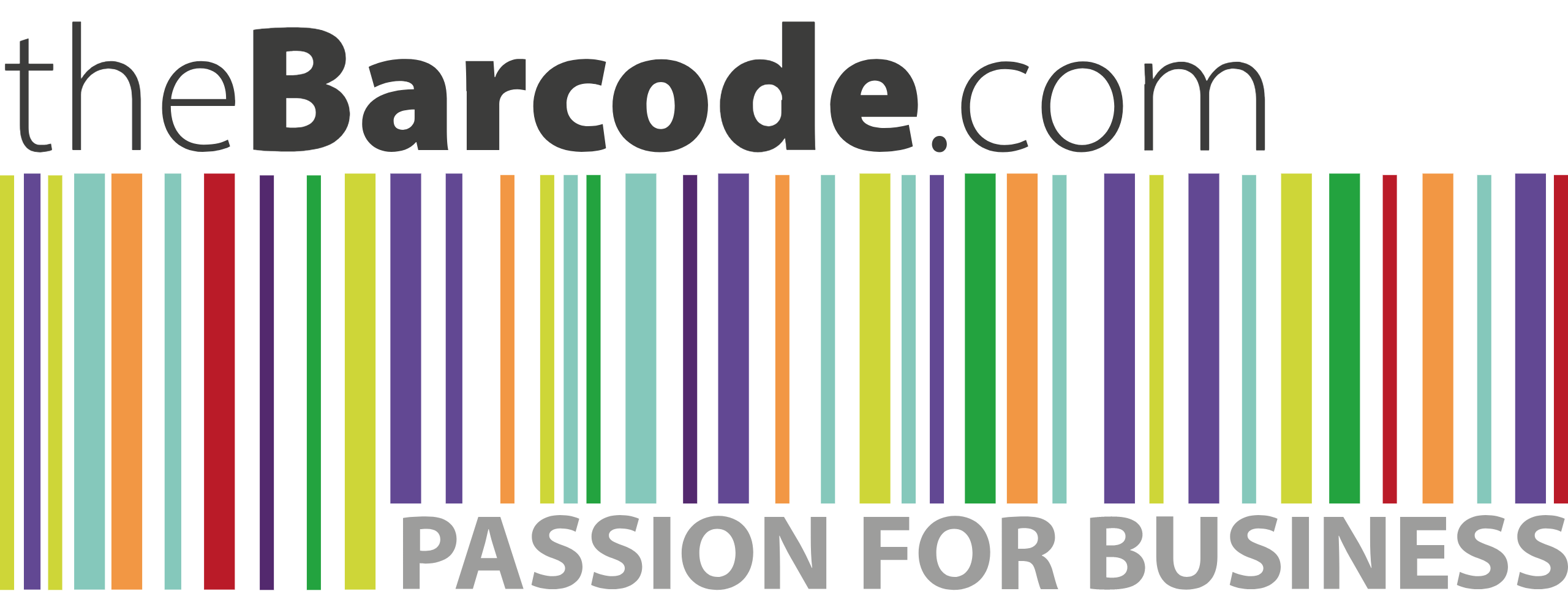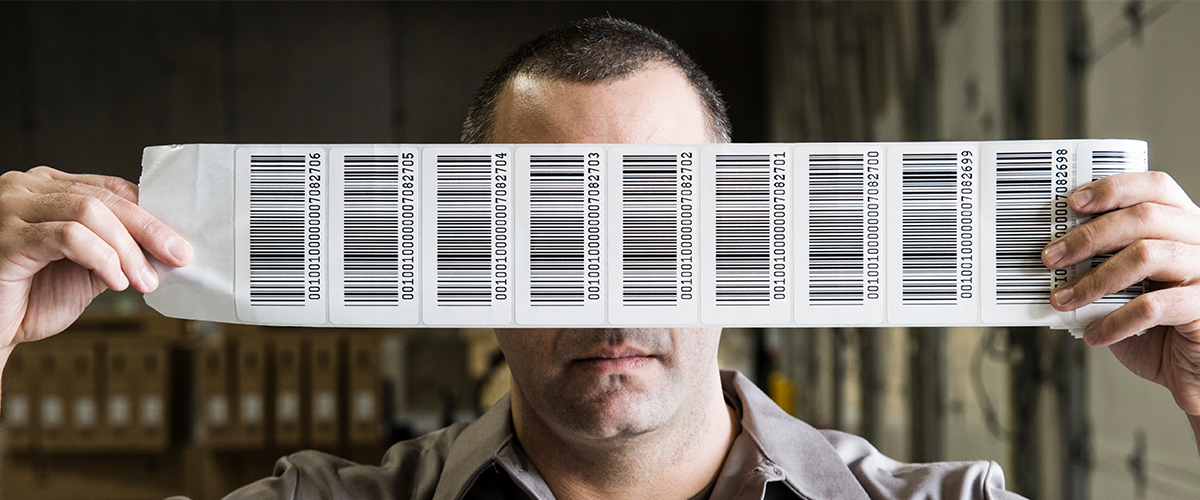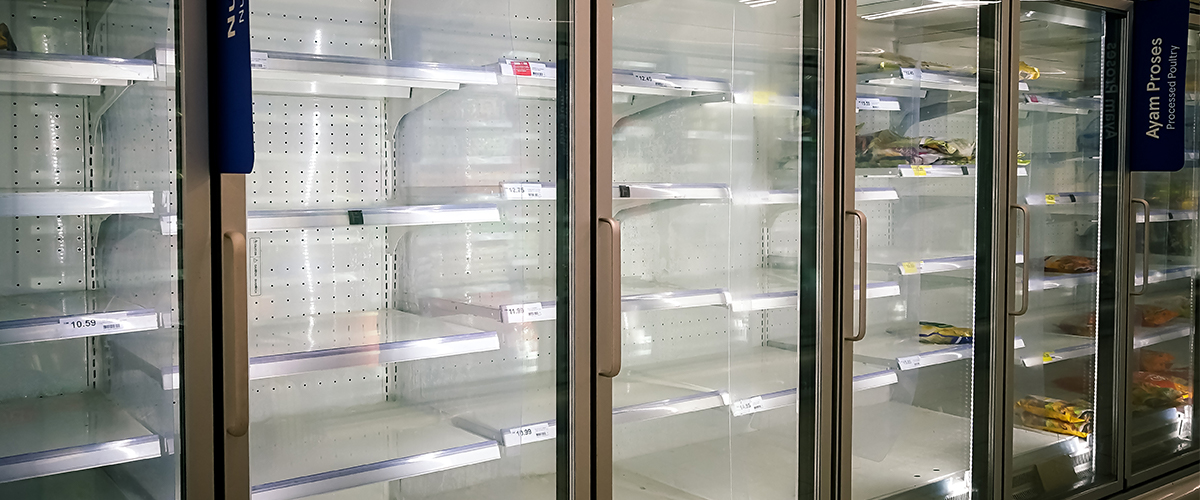A New Exciting Event Company
With the explosion of the home-based business industry, one business idea that can be very lucrative is starting an equipment rental business. It’s a huge industry, with annual revenues proliferating in the hundreds of billions. The industry is extensive, with the number of companies that rent large or small equipment increasing yearly. It has become a way of life for many individuals and businesses who do not buy event equipment but need it for their assignments. Numerous online and offline companies offer equipment rental services. If you’re wondering, starting an equipment rental business that continues to flourish and create a viable income stream is still very possible. An equipment rental business can make a lot of money in a concise period. It takes persistence, passion, and diligence. But most of all, it takes utilizing the right tools.

Type Of Event Equipment Rental Business
Starting your own rental business involves more than just collecting the right equipment. It’s about building an efficient working model and sales plan, making customer service your highest priority, and finding the best place to operate so you can succeed for years. You must explore all you can to get started and determine your profit margins from renting equipment. Here are some ideas for starting up an equipment rental business.
The equipment rental business is a growing market that offers many opportunities for entrepreneurs. You can rent out almost any equipment, from tech gadgets to tents. This might be right up your alley if you are looking for a way to make some extra money on the side. You may have to work evenings and weekends to get the business off the ground when you first start. If you’re willing to put in the hard work, you can make a living as an equipment rental entrepreneur.
There are many different equipment rental businesses; however, they all fall into two categories: private events and corporate. Private events include weddings, birthdays, anniversaries, and other celebrations held in private homes or rented venues like banquet halls or community centers. Corporate events include everything from product launches to conferences and trade shows. There are many opportunities to make money in this area, from weddings to corporate parties and sporting events.
The best way to determine which event you should cater to depends on your location. If there aren’t many people near you who need to rent equipment for private parties or corporate events, consider selling your services online only.
Is Event Equipment Rental A Profitable Business?
Equipment rental businesses can be a great option and set up on a shoestring budget. Equipment rental is a profitable business as it offers significant advantages to customers and business owners. On the one hand, customers can rent equipment temporarily without spending a small fortune on purchasing an expensive asset that they might use only once.
The ability to offer rentals when clients need a piece of equipment not available locally is powerful. For business owners, this presents an opportunity to provide a low-cost service to customers while generating profits from their investments in the equipment. You can grow your business and increase profit margins with proper pricing and marketing strategies.
A critical step to starting a thriving equipment rental business is determining what equipment you want to offer. The type of equipment you choose will depend on the target market for your business. For example, will you rent out tents, generators, or small tools like kitchen stuff?
Consider the following elements before selecting the type of equipment for your rental business:
- Does this type of equipment have high demand in your local market?
- What are other rental companies offering? Can you suggest something unique?
- How much profit do you expect to earn on each piece of equipment?
Here are four things to keep in mind when determining how much to charge for event equipment rentals:
- Cost of Equipment. What’s the cost of the items you’re renting? If they’re high-end items, like a projector or sound system, you’ll likely have to charge more than if it’s something less expensive like a folding table or tent. You’ll also need to consider whether or not there are additional costs for things like delivery and setup.
- Rental Lengths and Usage Policies. How long do you need to rent the equipment? If it’s just for one day and then returned immediately after use (as with some tables or chairs), your rental cost will be lower than if it is out for a month.
- Size of Your Event Footprint. How many square feet does your event equipment require? The larger the space, the higher your cost per square foot. If you rent a 200-person tent for an outdoor event on a grassy field, expect to charge more than renting out a 20-person tent in a small space like a meeting room at a hotel or convention center.
- Personal expenses: Other indirect costs might be associated with your rental business, such as insurance or monthly warehouse storage fees. These should all be factored into your pricing model as well.

How To Gain Knowledge And Earn The Skills To Run An Equipment Rental Business
A Bachelor’s degree in business administration or a related field should be the minimum educational requirement for an equipment rental business manager. Many community colleges and universities offer business management programs that can prepare students for careers in this industry. Courses relevant to this industry include sales, finance and accounting, communication, marketing, logistics, and human resources.
In addition to on-campus programs, many schools offer online courses for students who cannot attend school full-time. Students interested in starting an equipment rental business should also consider pursuing internships or externships. Internships allow students to gain professional experience and make connections with industry professionals who may be able to help them find jobs after graduation.
You can also check out some of the available professional certification programs, as they’ll go into much more detail than most classes and can be very useful. If you’re looking for specific information on this subject, plenty of books, podcasts, and other resources will help you learn more.
You should also talk to people who have worked in this industry and see what they think about it. You might even find someone willing to mentor you and help guide you through getting started.
Online courses to learn Bachelor’s Degree in Business Administration
You can gain some training from the following company
Read the following books to understand the equipment rental business better.
- A practical guide to working in an equipment rental business
- Equipment Rental Book by Detmer Consulting
Your Event Equipment Rental Business Niche
Equipment Rental is one of the fastest-growing industries in the world. According to the Department of Labor, more than 5,000 equipment rental companies are in the United States alone. When starting an equipment rental business, you need to find the right niche for your company.
You should focus on a good niche on a particular type of equipment that people need to accomplish a specific task. It could be catering equipment or even wedding supplies like tables and chairs. Some examples of successful niches are:
- Party Equipment Rental Businesses: These businesses rent out items like tables and chairs, tents, and other accessories for parties and special events. They often include catering equipment as well.
- Wedding Supply Rental Businesses: Wedding supply rental businesses are very popular today because people don’t want to buy everything they need for their big day, only to sit in storage after it’s all over. A wedding supply rental business will rent out things like table linens, china sets, and decorative pieces so that couples can focus on having fun instead of running around trying to find all the items they need for their wedding.
- Equipment Rental for Businesses. While some companies have their equipment, others will rent from third-party sources rather than buy it outright. It can be an excellent opportunity for you to start an equipment rental business and make money renting out products like tools, computers, office furniture, and other items that companies need regularly.
- Equipment Rental for Homeowners. If you are interested in landscaping or home repair, you may want to consider starting an equipment rental business that caters exclusively to homeowners part-time. By focusing on one niche of customers’ homeowners, you’ll be able to understand their needs better and improve your service accordingly over time.
A niche allows you to focus on one type of customer so that you can provide them with better service than anyone else. Customers want to be served by experts who know their needs and can meet them better. If you offer too broad a range of products or services, those customers will have trouble finding someone who knows their situation and can help them out. A niche allows you to develop expertise in that area, which means you can charge more for your services and still get customers.
Research Your Competition
If you want to start a business, you’ll need to know the market and competition. That’s why we’ll talk about how to research your competitors. It’s an essential step for any business, whether you’re starting a rental company or another type of business. There are several ways that you can research your competitors:
- Look at their websites. The first thing you should do is look at your competitors’ websites. Do they have a website? If so, what kind of features does it have? What type of information do they share on their site? How often are they updating it? Do they have social media pages? What kind of content are they sharing on these pages?
- Check out reviews and see what customers say about them. You might even find that customers mention other companies in their reviews that you hadn’t considered before!
- Ask. Ask friends who have used these services before for recommendations and advice on which company best suits your needs.
Here are some tools to help you in your market research
Event Equipment Rental Business Plan
Planning is a critical part of starting a business. A business plan is a written document that describes your company’s goals, strategies, and projected financials over the next three years. If you want to create an equipment rental business, it’s crucial to develop a detailed plan to help you succeed.
Many business plans often share the same essential elements: company description, market analysis, competition analysis, financial projections, and marketing strategy.
- What problem will your business solve?
- What do you want from your company?
- Why are you starting this business?
- How are you going to make money from the business?
- What type of equipment do you need to buy?
- Who is your customer base?
- What services will you provide to them?
- How will you reach out to customers, and how will they find you?
- How much money is required to start the business?
- What are your goals and objectives?
- How will you market yourself in this competitive environment?
- Where will your business be located?
- How much risk are you willing to take?
- How many employees will you hire (if any), and what will each person’s responsibilities be?
- What are your strengths and weaknesses in this market?
- What are the opportunities and threats in this market?
- How will you measure success in this market?
Develop detailed financial projections for at least five years into the future, including costs and revenues for each year of operation. You can use it to help secure funding from lenders or investors, but it will also help you better understand the market potential for your business idea. You might even start using this plan before you’ve secured funding so that you can test out some of your assumptions about whether people will pay for your services or not.

Event Equipment Rental Business Entity
When starting an equipment rental business, several essential tasks need to be completed before beginning operations. These tasks include:
Get a business permit. Depending on your business’s location, you may need to apply for a business license or permit. In some states and cities, you also may need to register with the secretary of state.
Get the relevant licenses. Some states require special licenses for certain types of businesses. If you need a license specific to your type of equipment rental business, check with your local government to see what requirements must be met.
EIN (Employer Identification Number). Your company will need this number for tax purposes, so it’s vital to obtain it early. You can apply online using Form SS-4 at IRS.gov/serviceonline/ss4/.
Business bank account. You’ll need an account separate from your account because customers will pay rent directly into this account instead of giving cash directly to you each month (or week). You will also use this account to pay bills and other business expenses such as insurance premiums or employee salaries.
Set up the business as a corporation. If you want to protect yourself from personal liability, it’s best to start the business as a corporation. You can create one by filing paperwork with the state government or hiring an attorney to do it for you. The process will vary depending on your location, but you’ll need to create articles of incorporation, hold a meeting with shareholders and file annual reports.
Buy insurance. You should buy business insurance before renting out any equipment so that if something happens while it’s in use or being transported, you’re covered. Equipment rental businesses usually carry liability insurance that covers accidents while the equipment is being used or stored on company property.
Know the zoning laws. Zoning laws determine where businesses can be located and what they can do within those areas. They also regulate how many people can work in each building and how much space they need based on their industry type. Know these regulations before buying real estate for your equipment rental store or office space for your employees.
Create A Partnership Or Operate As A Sole Proprietor
The first step in starting your own equipment rental company is forming your business entity. A sole proprietorship is the simplest way to start your business because it does not require paperwork or fees. Still, this type of entity comes with several restrictions: you are personally liable for all debts and liabilities incurred by the company. It cannot sell shares or issue stock options to employees.
Equipment rental businesses can be started as sole proprietorships, but they often operate as corporations or limited liability companies (LLCs). A corporation has more legal protections than a sole proprietorship, but it does require more paperwork and fees, which vary from state to state. It protects from personal liability in case of accidents or damage to customers’ property.
If you plan to operate your business as a corporation or LLC, check with your state’s Department of Revenue or Secretary of State office before registering your business to know the requirements for opening an equipment rental company.
Check out the following companies that can help you get your LLC.
You might also want to visit.
Banking For Equipment Rental Business
Equipment rental businesses can benefit from having a business checking account. However, it is not recommended that you open a business checking account at the same bank where you have your checking account. Some banks charge higher fees for business accounts and do not offer many services to small businesses.
If you are looking for a local bank with reasonable rates, look online at www.bankrate.com or www.bankaholic.com. These sites will give you the best rates in your area based on what type of account you are looking for (e.g., free checking vs. interest checking). You can also call different banks directly and ask them about the rates and terms on their business accounts before deciding on which one to go with.
Here are some best banking options for your business.
Event Equipment Rental Business Permits And License
To legally operate your equipment rental business in the United States, you need to obtain a business license. The license is issued by your state’s Department of Revenue and will allow you to operate as a legal entity in the state where your business is located. The required licenses vary widely between locations, but many companies need at least one type of license or permit before legally operating. You should contact your local government office to learn which permits you’ll need and how much they will cost (usually not below $25).
You will also need to obtain any other permits or licenses required for your industry and location. If there’s no local government in your area, contact the state agency that handles small businesses in your state.
License Requirements
There are no special license requirements if you rent general-purpose equipment, such as tools or vehicles. In this case, it would be best to set up your company as an LLC or S corporation and file for an EIN. You should choose between S corporations, C corporations, limited liability companies, and sole proprietorships. An S corporation is an excellent option for equipment rental businesses because it allows you to pass through losses to your income taxes.
Event Rental Company Financial Plan
As you start to research and think about what types of equipment you will need, it’s crucial to have a financial plan. You need to know how much money you can afford to invest in starting a business and what return you can expect from your investment. A financial plan will help you get your business off on the right foot.
Your first step is to determine how much money you have available for capital expenditures or working capital. It includes all startup costs such as equipment, vehicles, and office furniture. Next, calculate the monthly expenses of operating your business, including rent or mortgage payments, utilities, insurance, advertising, and payroll taxes.
Once you know how much money will be coming into and going out of your business each month, you can decide how much additional capital is needed for expansion or other needs. If your goal is making money, then this may seem like a complicated process. Still, if you want to build a successful business that provides jobs for others, then you must take the time to develop a solid financial plan.
You should try the following software to help you with your financial plan.
How Can You Fund Your Equipment Rental Business?
To get started, you need funding to finance your business entity. There are several ways to fund your business, but the most important thing is that you need to have enough money to pay for equipment, supplies, and payroll. You’ll need to obtain funding for your equipment rental business in the following ways:
Personal savings
If you’re starting an equipment rental company on a small scale, your savings will likely be enough to cover initial expenses. However, this option may not be feasible if your business snowballs since you’ll need capital for expansion and additional equipment.
Bank loans
You may need a loan from a bank or other financial institution to start an equipment rental business. Many banks are willing to lend money to startup businesses with a good credit history. The level of funding they’re willing to provide will vary greatly depending on the size of your business and its potential profitability. However, these loans often come with significant interest rates that eat into profits from day one.
Peer-to-peer platforms
Look into alternative funding sources such as peer-to-peer lending platforms. They offer competitive rates without the hassle of applying for a traditional loan from a bank or other financial institution.
Equity investments
Equity investors provide funding in exchange for partial business ownership, typically 20 percent or less. Equipment rental companies aren’t likely to grow into large corporations anytime soon unless they expand geographically or diversify their offerings significantly beyond just renting equipment. Due to this, they prefer some partial ownership.
Check out the following funding options you can choose from and finance your business.
Some peer-to-peer and crowdfunding platforms to fund your business.

Branding Your Event Equipment Rental Business
Branding is a marketing activity that helps you create a unique identity for your company. It’s one of the most critical steps in starting a business because it helps establish credibility and differentiate yourself from competitors. Your brand should account for the following:
- Create a visual identity that reflects the quality of your services and products.
- Make sure it’s consistent, so people know whom they’re dealing with.
- Make sure it’s professional.
- Get all of your employees on board.
When starting an equipment rental business, it’s essential to choose a brand that’s memorable and easy to recognize by customers. Be sure to choose a name that reflects your company’s values, mission statement, and goals to tell potential customers what they can expect from working with you. It will help spread the word about your business and encourage customers to return again and again. Here are some tips for branding your event equipment rental business:
- Create a logo. The logo is the first thing people will see when they come across your website or advertising material. Make sure it’s professional and reflects the image you want to portray.
- Pick a color scheme. Once you have your logo, choose a color scheme that matches it best. It will help tie together your advertising materials, from business cards to signage to websites and social media accounts.
- Pick fonts that work well together. Next, choose a font in your marketing materials (other than the logo), such as body text on websites or email signatures. Make sure it flows with the rest of your branding materials so everything looks cohesive and professional.
- Marketing font. Choose fonts for marketing materials separately from those used in body text on websites or email signatures. Make sure they flow with the rest of your branding materials so everything looks cohesive and professional.
Here are some software firms that can help your business brand.
Monitor your brand using the following software.
Protect Your Business Brand
One of the most important things you can do to protect your equipment rental business is to protect your brand. A great way to protect your brand is by protecting your trademark.
A trademark is a word or phrase that identifies a specific company or product. It’s important because it helps consumers identify who makes the product and what it does. Trademarks are also used to prevent other companies from using similar words or phrases for their products. That’s why it’s so important to register your brand with the U.S. Patent and Trademark Office (USPTO).
When you register a trademark, you receive exclusive rights to use the mark nationwide, giving you complete control over its use and display in marketing materials, packaging, and other aspects of your business. It gives you an edge over competitors who may try to use similar logos or names without permission from the original company holder.
If someone else tries to use a similar logo or name without permission, they could be sued by the original company holder. If found guilty of infringement, they could be forced to pay damages equal to your losses and attorney fees incurred during the litigation.
Acquire Great Reviews From Clients
One of the best ways to attract new clients is by getting positive reviews from current customers. Make sure that you offer incentives such as discounts or free products in exchange for them leaving positive reviews online on places like Google Maps and Yelp.
You can contact local businesses.
Contact local businesses and ask if they would like information on renting tools for their events, especially if they’re looking for something different than what they can find at their local hardware store.
Try this software to help you build your website.
Equipment Rental Contract
If you plan to start a business that rents out equipment, you may be wondering what kind of equipment rental contract you should use. You want to make sure that your agreement is legally binding and protects you and your customers. You want to make sure that your customer understands precisely what they will be receiving and what they will be paying for.
At the same time, you want to ensure that the agreement protects you from any liability issues that might arise later on down the road. You can enter into an open-ended contract, which automatically renews itself at the end of each term unless either party gives written notice before the end date specified in the document itself.
A contract for an equipment rental business may include the following clauses:
- Rental period and rate
- Deposit
- Repairs and maintenance
- Equipment on subject
- Indemnities
Additional software which can help you in your Equipment Rental Business
Marketing Your Event Equipment Rental Business
Marketing your equipment rental business requires a lot of thought and planning. You have to be careful not to spend too much money on marketing, but you also need to make sure that you reach the right customers. Your marketing plan should include:
- Your products and services. What types of equipment are you offering, and how does it differ from competitors’ offerings? What is your “wow” factor? Can you offer something better than what other companies do? For example, some companies provide custom tents or can provide white-glove service for set up and tear down.
- Your pricing structure. What is the pricing model (per day, per week, or hourly)? How much are you going to charge per hour or day? Make sure that you know the amount of money that people would be willing to pay for your service to set your prices accordingly.
- Location of your business. You need to make sure that you have a good site for your business as this will help increase its visibility and attract more customers than if it were located somewhere else. If possible, choose a place close to where most people live so that they will not have any problems reaching it quickly should they need to rent any equipment at all.
- Your marketing plan. What kind of marketing will you use? Is it social media or print advertising? Do you want word-of-mouth referrals?
- Your target audience. What demographics do you want to attract as customers? Are there specific locations or events where you want to be visible? How can you reach this audience without breaking the bank on advertising costs?
The following are some tips for marketing your equipment rental business:
Build An Event Rental Website.
If your business doesn’t have a website, now is the time to get one set up. Your website should be easy to navigate, contain all the information your potential customers need and include contact information to reach out if they have questions. Create an email list for your website and send regular updates about new products and services, discounts, and promotions.
Website Design
In the design phase, you take all your research and interviews and create a mockup of the site. It’s where you include all the features, functionality, and content you have identified as necessary. It’s also where you decide on the look and feel of the website, including color schemes and logo design.
You will also need to decide on any hardware or software requirements to run your site, such as hosting or a content management system (CMS).
Check some designs on the following websites
Create An Online Presence.
Social media presence is vital for any business today. You can use Facebook, Twitter, Instagram, and other platforms to share photos of your work and interact with customers personally. If you’re feeling ambitious, make a video showing how easy using one of your tools is.
Insurance For Your Event Equipment Rental Business
When you’re starting up any business, insurance is one of the most important things. You’ll need insurance for all kinds of reasons, from protecting yourself from liability claims to covering your equipment if it breaks down or gets damaged. Here are some essential insurance policies to look into when starting an equipment rental business:
- General Liability Insurance. The policy covers you against legal costs if someone gets hurt on one of your rental items or if someone sues you because of their injuries. General liability insurance usually comes with limits that range from $37 to $99 per month if your equipment rental business is small and starting up. Make sure those limits cover potential lawsuits and still leave enough money for other expenses like rent and payroll.
- Property Insurance. Property insurance covers damage to buildings and equipment caused by natural disasters such as floods, fires, or earthquakes but not floods. It protects your assets if someone gets injured on your property or someone’s personal property is damaged by an accident on your premises. You may also consider adding flood damage coverage if you’re in an area prone to flooding or hurricane damage.
Check the following companies that can provide you with event equipment rental insurance.
Event Equipment Rental Business Location
When you’re starting a new business, location is essential. You might have the best idea in the world, but if no one knows about it and can’t find you, it will not work. Here are some things to consider when looking for a location:
- Costs. How much will rent, utilities, and other expenses cost? Will they be affordable? If not, what can you do to lower them?
- Location. Where do your customers live? Are there businesses nearby that could be good partners or referral sources? What’s the traffic like where you want to open your store?
- Parking. Do people drive or walk to your location? Is the parking big enough to accommodate both customers and employees?
- Signage. What kind of sign should you put up outside? Will people see it from far away or close up? Where should it go, in an empty building or next door to another business or both?
- Traffic. If your business is located in an area with plenty of pedestrian traffic, you may save money by having someone else park for you (such as valet or shuttle services). However, if there isn’t much foot traffic around your location, most customers will be driving so they can park close by and avoid long walks in bad weather conditions.
You could rent space in a larger warehouse or garage or buy property close to where your customers live or work. You may also choose to rent a small space in an area with high foot traffic, such as a shopping mall or strip mall parking lot.
To purchase or lease a property for your business, try the following commercial real estate sites

Event Equipment Rental Staff
Equipment rental businesses can be very profitable business ventures. As with any business, you need to have the right equipment, staff, and customer service to be successful. You want employees who are good at their jobs and enjoy working with people. You’ll need employees who can answer questions about your products and services and encourage customers to rent more items than they initially planned.
If you don’t have the right people on your staff, it will show their performance and attitude toward customers. One way to avoid this problem is by hiring someone who has experience working with others and has worked in customer service before. If you have someone who isn’t accustomed to working with others, it will show up in their interactions with customers and their attitude toward their job duties.
The staff of an equipment rental business can include several different types of employees. The following list includes the most common types of employees needed for an equipment rental business:
- Service technicians: These workers repair, maintain and install equipment such as pumps, computers, generators, tents, etc. Service technicians must be skilled in their trade and able to work with a variety of tools and machines.
- Sales staff: Salespeople are responsible for selling products to customers while also providing them with helpful information regarding their purchase options. Salespeople must have strong communication skills to communicate with clients about the products they sell effectively.
- Office staff: Office staff members are responsible for performing clerical tasks such as answering phones, filing paperwork, filing paperwork, scheduling appointments, and other administrative duties.
- Delivery Drivers: Delivery drivers will be responsible for picking up equipment from suppliers and delivering it to clients when they need them.
- Ambassadors. Ambassadors are responsible for communicating with clients about their rental needs, answering questions about products and pricing, and providing excellent customer service before, during, and after each event. An ambassador also helps set up and break down equipment at events as needed by following instructions provided by the planner or event organizer. Ambassadors should have excellent communication skills and work well under pressure while maintaining a positive attitude at all times.
Here are some agencies you might reach out to find staff.
Event Equipment
Event equipment is usually required by companies that organize public gatherings like concerts, shows, and sporting events. These companies typically hire personnel who help set up the event and ensure everything goes smoothly according to plan. They also offer a wide range of services, including lighting, sound systems, stages, etc.
- Portable Restroom
- Generators
- Chairs
- Catering Equipment
- Audio Visual
- Lounge Furniture
- Cooking equipment
- Cooling and heating
- Restroom trailers
- Stage
- Tents
- Wedding Accessories
- Dance Floor
- Bar Tools
- Office and Conference
- Porcelain
- Cutlery
- Glassware
- Serving/Table/Buffet Accessories
- Warming & Cooling Systems
- Kitchen Equipment
- Table decorations
- Table cloth
- Stage Lighting
- Sound Systems and Speakers
- Projectors and Projection Screens
Rental Point Of Sale
Point of sale (POS) is an essential part of every business. It’s the point where you interact with your customers and provide them with a memorable experience. Your POS system can be as simple or complex as you want it to be. You can choose from various systems suitable for small businesses, including cash registers and credit card machines.
The more sophisticated POS systems have inventory management, customer tracking, and employee scheduling. They also offer a range of payment options so that customers can pay using their preferred methods, such as cash or credit cards.
You can use the following rental business POS software
Bottom Line
The equipment rental business is an excellent opportunity for someone to enter the business world with very little cash flow. If you’re serious about providing high-quality, low-cost rental service of event and party rental equipment, you’ll do well to form a solid business plan. By starting with some model plans and strategies that work, you can learn more about the industry and what will be necessary for your business. The article gives you all the information to correctly start your event equipment business.












